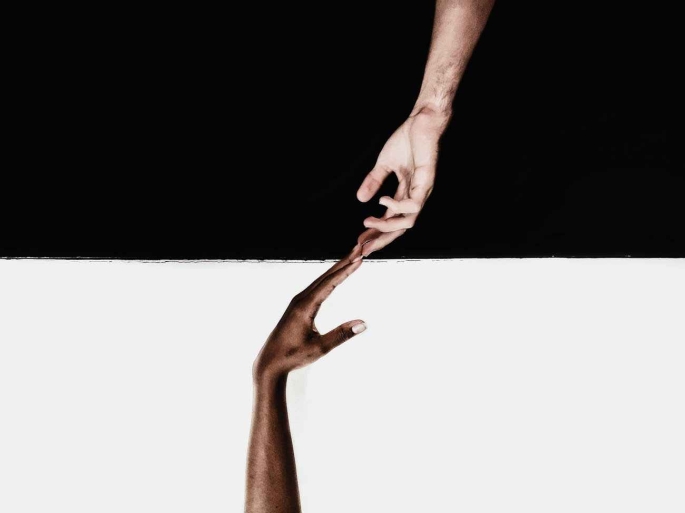“Your task is not to seek for love, but merely to seek and find all the barriers within yourself that you have built against it.”
― Rumi
Transactional Analysis is a theory of Personality and systematic psychotherapy for personal development and personal change. This concept was given by Eric Berne.Eric Berne was born on May 10, 1910, in Montreal, Quebec, Canada, as Eric Lennard Bernstein. He was the son of David Hillel Bernstein, MD, a general practitioner, and Sarah Gordon Bernstein, a professional writer and editor. His only sibling, his sister Grace, was born five years later. The family immigrated to Canada from Poland and Russia. Berne’s father died of tuberculosis when Berne was 11. His mother then supported herself and her two children working as an editor and writer. She encouraged her son to follow in his father’s footsteps and to study medicine. After completing his one-year internship in 1936, he began his psychiatric residency at the Psychiatric Clinic of Yale University School of Medicine, where he worked for two years.
He developed the tripartite scheme used today (Parent, Adult, and Child), introduced the three-circle method of diagramming it, showed how to sketch contaminations, labelled the theory, “structural analysis”, and termed it “a new psychotherapeutic approach”.By the 1970s, because of TA’s non-technical and non-threatening jargon and model of the human psyche, many of its terms and concepts were adopted by eclectic therapists as part of their individual approaches to psychotherapy. Within the framework of transactional analysis, more recent transactional analysts have developed different and overlapping theories of transactional analysis: cognitive, behavioural, relational, redecision, integrative, constructivist, narrative, body-work, positive psychological, personality adaptational, self-reparenting, psychodynamic and neuro constructivist
Berne was influenced by many teachers who influenced his thinking and inspired him to work on this field for therapy to patients. Professor Eugen Kahn, German Psychiatrist and Eric Berne teacher on psychoanalytic theories,Dr. Paul Federn Austrian ,American psychologist spoke of functions of ego formation,Professor Erik Erikson, German American developmental Psychologist and Psychoanalyst worker and taught Eric Berne on psychotherapy and Sigmund Freud, Austrian neurologist laid the foundation of phenomena of transference and resistance and multi- faceted components of personality
Assumptions and Principles in TA :
(1)People are OK. This is the fundamental acceptance that regardless of what you do, no matter what you think, or despite your feelings you are a worthwhile, valuable person in your own right. You are special. Everyone is special. We are all as important as each other. This is a statement of essence and not behaviour.
My personal takeaways from this are
- You and I both have worth, value and dignity.
- You accept me as me and I accept you as you.
- We are all equal and no one is one up on the other.
- I recognise your presence in my life and acknowledge you for being you and vice versa.
- I will not attempt to change people to suit my needs ,although the person has a different appearance and qualities that do not fit into my frame .
- I will accept people openly for what they are over what they do and have.
- I must respect everybody and accept them as they are.
- Positive reinforcement increases the feeling of OKness in all of us.
- Each person has validity, importance and equality of respect.
- Each of us deserves positive strokes because we all co -exist.
- I must positively stroke and accept the damaged and unaccepted parts of my personality to heal myself. I can change myself by stroking the rejected part and making it unite with the accepted part of my personality.
- My awareness of myself and my behaviour with people around me will heal me of my damages, pain and suffering.
2) We can all think. If we have all got the capacity to think then we have all got the capacity to work out what we want and work out how to get there.
My personal takeaways from this are
- Everyone who has a functional brain can think.
- Everyone can decide and live the consequences of their choices
- I should not underestimate anyone’s ability to think and decide.
- I should not look down or judge anyone’s capabilities.
- All have a basic lovable core and desire for personal growth.
3)People decide their own destiny and have the power to change these decisions at any time. If we got to where we are today because of the decisions that we made then it’s within our power to change these decisions. We can be who we want to be and achieve our goals if that’s what we choose to do. Small changes may start the process and build up to larger changes when it feels safe. It’s about getting around the barriers to change together. Sometimes they need kicking down, sometimes we go round them and sometimes we realise that although they look like they are there, when we examine them up close, they are not there at all.
My personal takeaways from this are
- I have only one life and I am making my own life.
- I make my own decisions and have to face the consequences of those decisions.
- I have to take ownership of our own decisions and be accountable for the actions and results.
- The power to change my life lies with me.
- With awareness I can change my life to a more meaningful and fulfilling one.
- I will not resort to luck and fate and blame others for my problems.
- All emotional difficulties in life are curable.
PRINCIPLES OF TA:
- Contract which can be an administrative one as well as a psychological contract emphasising on mutual respect ,trust and confidentiality. This enables to set expectations and goals for parties involved in TA.
- Open communication which is free of jargons and acknowledges that you and I are on equal levels.This enables mutual acceptance, respect and non- violent communication between the parties.

































